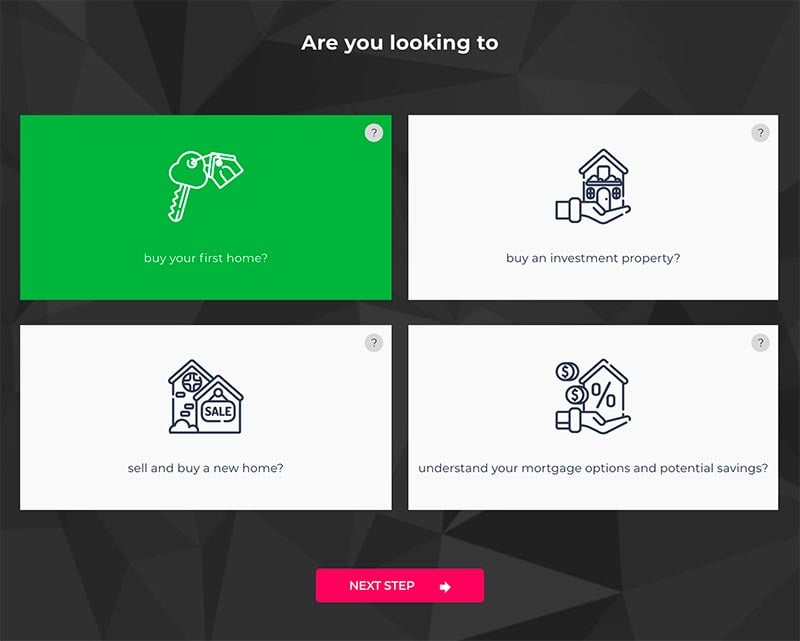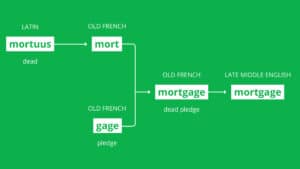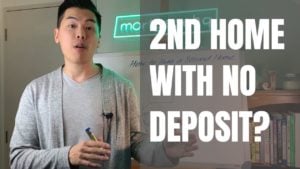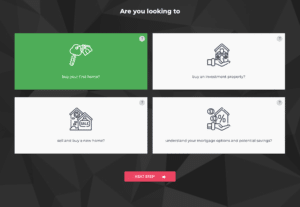Of course, you can quickly estimate your borrowing power using a few data points to find out the amount that a bank may offer you. You generally do this by using a mortgage calculator. But that does not mean you should borrow that whole figure.
We get that most people see a number and with today’s red hot housing market, it’s probably a little less than you would like to be able to play with. So of course, you are compelled to stretch that figure to the max. Doing this can come with additional complications both in the short and long term though.
There is more to this financial commitment than meets the eye. If you want to understand how much you can afford in NZ, then let’s take a look together at the key concepts you need to know.
If you’ve done a little research and know that reinvesting in property is a smart way to smash your mortgage and become financially free, then plan for this now when you ask yourself what kind of mortgage I can afford today that will set me up for tomorrow. If you try to max out your borrowing this time around then buying the next property might be a lot harder. We suggest considering leaving some borrowing power in reserve.
When you plan ahead, you make a decision that considers your long term plans as well as your current finances. You are going to be in a better position this way.
This article will provide tangible advice on how you can do this. We will also explain basic mortgage lending criteria that you should be savvy with and take a look at how mortgage affordability is assessed. Your mortgage advisor can help you to understand these concepts a little further and by using your unique situation, give you comprehensible solutions that realize your goals.
How much do I need to borrow for my mortgage?
There are very few people in this world who are able to buy a property with cash up front. Mortgages have been around since the 18th century as a means for people to pay off the full price of their property in instalments by borrowing money from a lender.
Mortgage rates change periodically and differ between banks. You need to take into account the current interest rate when understanding how to calculate what mortgage you can afford.
The banks here in modern NZ will lend generally 80% of the total value of a property for owner-occupiers and only 60% for investors. This means that you need to have a 20% or 40% deposit respectively as standard mortgage lending criteria.
Any mortgage holder with a higher LVR than standard is more vulnerable to financial shock caused by a recession or a rise in interest rates. You can read more about mortgage deposits here.
A bank can lend up to 95% in certain conditions – but this is increasingly rare.
The trade-offs to mortgage affordability with lower deposits.
If you borrow more than the standard 80%, then you may need to show that you have saved that deposit rather than it being gifted in order for a mortgage to be approved. This is one of the situations where a bank will care where your deposit cash comes from.
A bank will need to see that you have the ability to save and factor this into determining what size mortgage can I get.
With lower deposits, banks see borrowers as a higher risk. They therefore charge additional costs to protect their investment in you. These may be a mortgage insurance premium or a low equity premium. So yes, if you have a low deposit you end up paying more than your neighbour with a larger deposit.
You may also be expected to front the cost of a Registered Property Valuation (circa $1000) as well as further property reports to satisfy the bank that your purchase is a sound one.
In addition to the one off costs that come with a low equity, high risk, high LVR mortgage, monthly repayments will obviously be more as you have a larger debt to pay back.
How much mortgage can I borrow with a X deposit?
To calculate what size mortgage you can borrow, deposit size is the first of two factors. When you have a deposit, the amount that you are able to play with when it comes to purchasing a property increases. But you will also need to be able to afford or service that mortgage (we discuss that next). A mortgage calculator can help you to understand how much mortgage you could be approved for and combining this with your deposit shows you the value of a property you can afford.
Please check out this article for detailed information about what deposit size you need to secure a mortgage, but here is a quick example if you have a $150,000 deposit.
| Deposit Percentage | 10% | 20% | 40% |
| Mortgage You Could Borrow | $1,350,000 | $600,000 | $375,000 |
| Price Of Property You Can Buy | $1,500,000 | $750,000 | $525,000 |
How much home loan can I get on my salary? What size mortgage will my income get me?
Income and salary is normally the biggest contributor if you are asking “how much I can borrow for a home?” Whether it be earned from a single income or you’re looking for a joint mortgage, finding out how much the bank will lend me will boil down to your disposable income as well as your ability to save.
Remember each bank is very different. We have examples demonstrating a half-million dollar difference between banks. If you’re looking for some more information on what size mortgage you can borrow with your salary, there is this guide to mortgage calculators that you can read.
The long and short of it is that banks assess your income and expenses to determine your uncommitted monthly income (UMI). This is just like doing a budget to see how much you can afford to pay for a mortgage. The kicker is that they don’t use the actual interest rate you will pay. A bank will use a higher rate – they call this a test rate. There is a problem with this. It makes it harder for you to be able to afford a large mortgage. However, a benefit is that this will ensure you can afford this mortgage, even if interest rates increase.
You can take comfort in borrowing large sums of money from banks because they factor in a lot of scenarios where your ability to pay will be strained and they make sure you can afford to repay them. Don’t let that be an excuse not to be ready in emergencies though. You need adequate insurance cover and savings ready to go if your income stops or reduces for a medium-term period.
I want to work out how much I can borrow for my house.
We promised tangible solutions at the beginning of this article. So here they are. If you’re looking to work out how much mortgage I can afford, then take the following steps.
- Understand government support
Check to see if you are eligible for any of the available government support, particularly for first home buyers. It may only mean a few small changes to your yearly budget to ensure you are on track with relevant KiwiSaver contributions.
- Talk to all the banks (or skip the work and talk to one adviser).
After looking through a few different mortgage calculators and coming up with a rough estimation of how much home loan you can get, get in touch with a preferred bank for a more serious conversation.
If you are looking to use the equity in your home to buy a second investment property, then get the relevant information you need from your current bank.
- Find a mortgage advisor
A professional is going to have access to a vast store of information across many different banks, as well as working relationships that can benefit you. Ensure you enlist the help of a mortgage advisor who you can talk to about your goals and concerns. To get an overview of your borrowing position across the NZ banks use the 90-second Mortgage Snapshot.
- Three month prep period
The banks look at your income and then subtract all of your expenses to work out your UMI (uncommitted monthly income). To increase your affordability, you should look at increasing salary whilst decreasing expenses as much as possible. Then maintain this for a three month period without going into any unarranged overdrafts or missing any repayments.
How does my credit rating impact how much a bank will loan me for a mortgage?
Your history of all credit transactions including bill payments, hire purchases, missed payments or any defaults will be available for a lender to inspect on your credit rating. If your score, which is a number out of 1000 that summarizes how reliable you are with lending, is anything less than about 700, then you may find it a little more difficult than others to obtain a mortgage.
Your credit rating is viewed in conjunction with other factors. How much you can borrow depends on not only your income but your ability to save and your reliability with repayments as well.
Can I afford my mortgage?
Mortgage affordability can be daunting. Because a home loan is a long term debt and the biggest that most people enter into, it is critical to ensure that you are ready for it. To answer whether or not you are able to make your mortgage repayments, consider the following factors:
- Percentage of your income
A common rule of thumb is that between 30% and 40% of your total income should be going into any fixed repayments. This includes hire purchases, a mortgage or other loans you may have. By calculating your income and removing all fixed payments, you can see what size mortgage you can afford.
Be sure to play around with different interest rates to allow some flexibility with the potential rising of interest rates over the years. Banks will use a higher interest rate than the current one as a test rate when calculating how much mortgage you can afford.
- Uncommitted monthly income
This test rate is used when determining your uncommitted monthly income (UMI). As mentioned before, this is a budget a bank will create using your income and your expenses. Do one yourself to see whether you are comfortably able to afford your mortgage.
- Consider flatmates.
If mortgage affordability weighs heavy in your mind, boarders or flatmates might be a consideration. The additional rental income can be factored into your budget, although be aware that some banks will not consider this in their calculations.
We know what banks will and will not be flexible with their UMI calculations, so make sure you speak with a member of our team about your personal situation so that we can team you up with the best bank for your home loan.
What mortgage can I get?
Not only do different banks offer different options and deals, but there are also a variety of mortgages that are designed to suit people at different stages of their lives.
- Table loan
The most common repayment structure available. A table loan is when you have a set number of years to repay your home loan with regular repayments. The early payments primarily pay off the interest and the later ones primarily repay the principal.
- Revolving credit loan
For well organised and disciplined people, a revolving credit loan could be the answer to paying off your mortgage faster. Rather than having a home loan as a separate account, all of your income goes into your loan and bills go out of it. Interest is calculated daily.
By putting your savings into this kind of loan, you can save more than any interest you might have accumulated by reducing the interest of your loan.
- Offset loan
This is where you link accounts and effectively reduce interest paid. For example, if you have a $500,000 home loan, but have $100,000 in savings across multiple accounts, including your partner’s savings account and your everyday account, then the interest you need to pay is based on only $400,000.
- Reducing loan
This is when you pay the same amount of the principal of your loan each month whilst reducing the interest repayments every time as a result. Repayments start off high and reduce over time.
- Interest-Only
As the name suggests, this is a type of repayment structure that only focuses on paying the interest accumulated each month. This makes payments lower although the loan will never decrease over time as a result. This is often favoured by property investors when they can qualify to receive one – our advisers often help clients secure interest-only terms.
Home loan affordability in a nutshell.
Every bank is different with how they view an individual’s reliability to repay a loan. They have their own calculations and use their own formula to determine how much you can borrow on a mortgage. We have examples of a half a million-dollar difference between banks mortgage calculators.
The easiest first step in understanding how much you can borrow for a house is to use our mortgage snapshot which is an advanced mortgage calculator. This provides you with an aggregate perspective from the entire market – rather than a specific bank. In 90 seconds you can get a general idea of how much your income allows you to play with.
You will then need to determine whether you can afford your mortgage by considering all fixed repayments and other expenses. A general rule of thumb is that all loans and hire purchases amount to no more than 40% of your gross income. If you are nervous or confident about your ability to afford a mortgage and are comfortable with how much you can borrow on a mortgage, get in touch to discuss your long and short term goals and considerations. Book a 10-minute introductory call to start the process. From there, we will create you a borrowing power spreadsheet and organise an in-depth conversation with a mortgage adviser, so that they can line you up with the best possible bank to help you on your path to homeownership and financial freedom.













